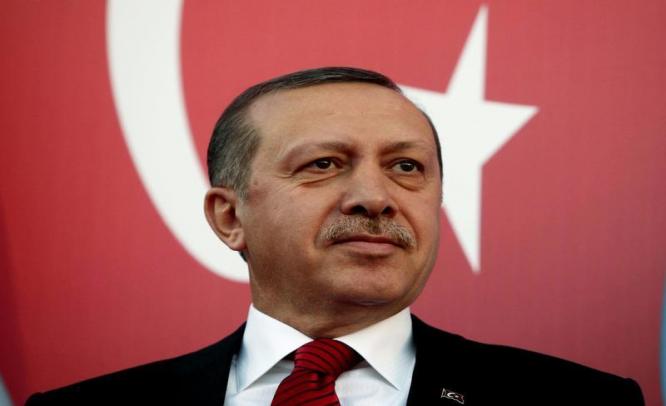Erdogan government declares war on social media as polls approach and opposition gathers steam, dealing the currency a body blow, reports Team IFM
Istanbul, March 24: Turkish Prime Minister Tayyip Erdogan blocked access to Twitter on Friday in a desperate bid to gag detractors before the civic polls next week, and in the process, threw the country into further turmoil that saw the lira, one of the weakest currencies right now, go into a freefall.
Soon after the crackdown by Erdogan’s ruling AK Party, the lira lost 0.7 percent but recovered somewhat to trade at 2.287 to the dollar or 4 percent weaker, while the Borsa Istanbul 100 index lost 0.9 percent.
The country is scheduled to hold municipal elections on March 30, while presidential polls are scheduled for August, which Erdogan is expected to contest.
But opposition to his regime has been gaining momentum over graft charges and after a tape, allegedly containing a recording of Erdogan instructing his son to hide huge caches money, was recently released anonymously though Twitter.
Erdogan has dismissed the tape as a fake, but the turmoil has provoked questions over how damaging the political situation will be for the economy and the lira, which is over-valued about 12 percent according to a UBS gauge that tracks 22 exchange rates.
Manik Narain, a currency strategist at UBS AG in London, predicted on Friday soon after Erdogan’s move against Twitter that the lira would dip even more, to 2.3 per dollar, within a month. “The AKP’s actions in the last few months have been increasingly heavy-handed,” Narain told financial news and services provider Bloomberg.
Erdogan last week also threatened to uproot Facebook and YouTube “from the roots”in his crackdown on social media to check what he termed was a “plot” to topple him before the municipal polls on Sunday, which observers believe his ruling AK Party will win.
The country is polarised between Prime Minister Erdogan’s ruling AK Party and Islamic scholar Fethullah Gülen followers, who hold key positions in the police, judiciary and secret services. On December 17, the sons of three Turkish cabinet ministers were arrested on graft charges that led to a political crisis precipitating the lira fall.
Analysts foresee economic mess from Erdogan’s latest move. According to Inan Demir, chief economist at Finansbank, it remains to be seen whether AK Party benefits or suffers from the Twitter ban in the upcoming elections.
“However, from a purely markets perspective, the whimsical/erratic attitude of the government can only add to Turkey’s risk premium,” Demir told wire service Reuters.
Bank Intervention
On January 28 night, the Turkish Central Bank’s Monetary Committee stunned analysts by upping its one-week repo rate to 10 percent from 4.5, and its overnight lending rate to 12 percent from 7.75.
Similarly, overnight borrowing rate saw a massive jump from 3.5 percent to 8 percent.
The lira recorded its biggest gain in five years on the heels of the a bumper rate hike by the Central Bank of the Republic of Turkey on January 28, only to go into a tailspin the next day and losing all its gains of the past 16 hours.
In the process of its fall, the lira dashed hopes that Turkey had got itself out of an economic turmoil plaguing the markets before the country went to the March polls.
Two days later, taking note of the volatility, the central bank had said it would tighten its monetary policy “until there is a significant improvement in the inflation outlook” and that if deemed necessary, liquidity policy maybe tightened “further”.
After the “shock-and-awe rate hike”, the country’s central bank kept interest rates unchanged. The lira has since then swung between steady to slightly weaker, but analysts have attributed the levelling to the bank intervention, and not as a result of the economy improving.
However, with the lira holding, however tenuously, policymakers did not see enough movement in the currency to warrant another tightening.
However, Shweta Singh, an emerging-markets analyst with consultancy Lombard Street Research, told Bloomberg that the lira, along with the South African rand, was still too expensive despite recent gains. “The currencies are not appealing relative to the risks,” Singh was quoted as saying.
The Lira Mess
For long, Turkey’s central bank has refused to respond to calls for raising interest rates in a bid to protect the lira, because the Erdogan government was publicly opposed to it.
In fact, the prime minister told reporters after the central bank’s January rate hike that he was “always against increasing interest rates” but that now that the bank had done it, he would be “patient” for a while.
The Prime Minister Erdogan was also quoted by pro-government newspaper Yeni Safak as saying that the government was working on “a Plan B or a Plan C” and that “an out of the ordinary” stimulus package would be announced in the coming days or weeks.
As a direct fallout of the uncertainty over the lira in the past few weeks, according to estimates of the Turkish Industry and Business Association (TUSIAD), foreign currency debt of domestic companies have risen between 25-30 percent, and now stands at about $86 billion, the bulk of it of services companies.
Several companies have had to cancel critical investment plans that could hamper growth, while foreign firms which had previously considering investing in Turkey – for long a favourite investors’ destination – are having a rethink.
The lira had rallied to a 2.6 percent gain to the dollar following the January 28 rate hike announcement, a superlative performance considering it had lost as much as 16 percent against the dollar since December 17, the day of the high-profile arrests.
“Some German companies contacted us recently because they wanted to know what was happening,” Reuters quoted Alper Ucok, head of TUSIAD’s Berlin office, as saying. “We said the trend is not very promising, and there are expectations the lira could weaken further.”

